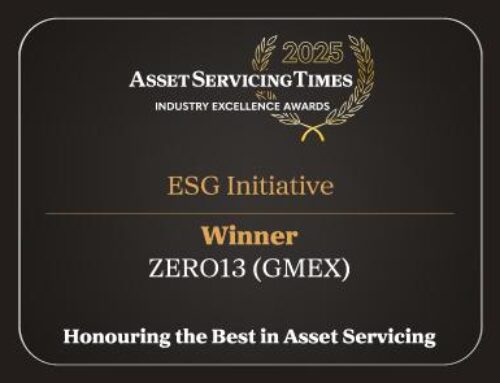By Hirander Misra, CEO of ZERO13 and Lincoln Teo, MD of ZERO13 Trading
On 16 October 2024, ZERO13, in collaboration with Energy Absolute, CP Group, and the Klik Foundation, hosted a pivotal roundtable in Thailand. The discussions centred on Thailand’s renewable energy potential, carbon credit markets, digital solutions, and the broader global challenge of addressing climate change. This event gathered industry experts and stakeholders from various sectors who sought out innovative paths toward a more sustainable future for Thailand and globally.
Key Themes Explored During the Roundtable
Unlocking Thailand’s Renewable Energy Potential
Thailand’s renewable energy landscape was a prominent focus, with participants discussing how the country could leverage its resources to accelerate decarbonisation. The fragmented nature of carbon markets emerged as a recurring challenge, prompting conversations about the need for interoperability between components such as registries, exchanges, and verification systems.
The roundtable discussion emphasised Thailand’s significant potential for innovation in the renewable energy sector. Participants suggested that adopting a holistic and integrated approach could position the country as a leader in renewable energy within the region, attracting investment and fostering sustainable development. An integrated strategy that combines technological innovation, policy support, and private sector engagement, is needed. Additionally, the conversation underscored the critical role of digitalisation in enhancing operational efficiency and building trust in carbon markets.
Addressing Challenges in Carbon Credit Markets
The complex dynamics of the carbon credit market were thoroughly examined, shedding light on critical issues such as double counting, the reliance on manual processes, and the absence of standardised pricing mechanisms. Participants engaged in a robust discussion about the significance of Articles 6.2 and 6.4 of the Paris Agreement, which provide frameworks for international carbon trading. Key challenges discussed included:
- Persistent issues on double counting of carbon credits
- Lack of standardised verification processes
- Limited transparency in credit generation and trading
- Inconsistent pricing mechanisms
The discussions highlighted how these provisions could pave the way for both bilateral agreements and more comprehensive multilateral frameworks aimed at facilitating carbon credit trading.
Interestingly, the group also drew parallels with Singapore’s innovative carbon pricing framework. Singapore’s success in creating a transparent and effective carbon market was cited as a potential model for Thailand to emulate, along with strategies to motivate businesses to adopt more sustainable practices. These measures were unanimously recognised as vital steps for Thailand in its journey towards achieving environmental sustainability and enhancing its engagement in the global carbon market.
The Role of Digital Technologies in Carbon Markets
Digital technologies, such as satellite imagery for precise carbon sequestration tracking, drones technology for environmental monitoring, AI to enhance data intelligence and blockchain for transparent and immutable credit verification, were identified as transformative tools for carbon markets. These technologies can enhance the measurement and verification of nature-based carbon credits, improving transparency and efficiency.
The idea of a digital hub and carbon credit exchange platform which is distributed rather than centralised was discussed as a means to connect buyers and sellers while ensuring robust oversight. This approach in Thailand aligns with ZERO13’s mission to foster price discovery, standardisation, and fraud prevention in carbon markets with a model that facilitates increased investment and liquidity..
Fostering International Cooperation
The discussion prominently emphasised the urgent need for international collaboration in tackling climate change during this the importance of standardising carbon credit pricing was highlighted. Doing so would streamline transactions and build greater trust within the market. Furthermore, the creation of strong mechanisms to ensure market compatibility was identified as a crucial step towards establishing a unified global approach to carbon trading. It was stressed that effective climate action across borders relies on robust government enforcement and the implementation of universally accepted frameworks.
Concrete Next Steps and Actionable Outcomes
The roundtable concluded with several actionable steps aimed at advancing Thailand’s sustainability journey. ZERO13 committed to sharing its expertise in sustainable finance and digital technologies with Thai universities, particularly Mahidol University, which expressed interest in establishing a sandbox for testing sustainability-focused innovations. Participants also urged the Thai government to consider implementing a carbon tax and regulations for greenhouse gas emissions to incentivise businesses towards cleaner practices and align with global climate goals. Additionally, ZERO13 outlined that it can focus on developing digital solutions to standardise and enhance price discovery in the carbon credit market in a way that optimises distribution into international markets, with local stakeholders encouraged to create a local digital hub and distributed carbon credit exchange platform to improve market accessibility and transparency.
It was also discussed that ZERO13 can offer guidance to companies on how to effectively leverage Articles 6.2 and 6.4 for carbon offsetting. The importance of preparing for future carbon reporting requirements was strongly emphasised by participants. Furthermore, Energy Absolute and the Click Foundation will continue their collaboration on Article 6.2 projects, concentrating on innovative strategies to drive sustainable development in the region.
Moving Forward: Bridging Gaps in Sustainability
The ZERO13 roundtable crystallised a powerful narrative: Thailand is not just responding to climate change, but has the potential to position itself as a global leader in sustainable innovation. By integrating advanced technologies, fostering cross-sector collaboration, and creating supportive policy frameworks, the country can transform environmental challenges into economic opportunities. The roundtable concluded that the interconnectedness of carbon markets, renewable energy, and digital technologies is essential in achieving climate goals. By fostering dialogue and collaboration, the event laid the groundwork for meaningful action in Thailand and beyond.
The focus will remain on creating scalable, transparent, and interoperable solutions. With continued international cooperation, Thailand has the potential to become a regional leader in sustainability, setting an example for other nations to follow.
By addressing the complexities of carbon markets and embracing digital transformation, stakeholders can drive impactful change and contribute to a more sustainable future for all.


